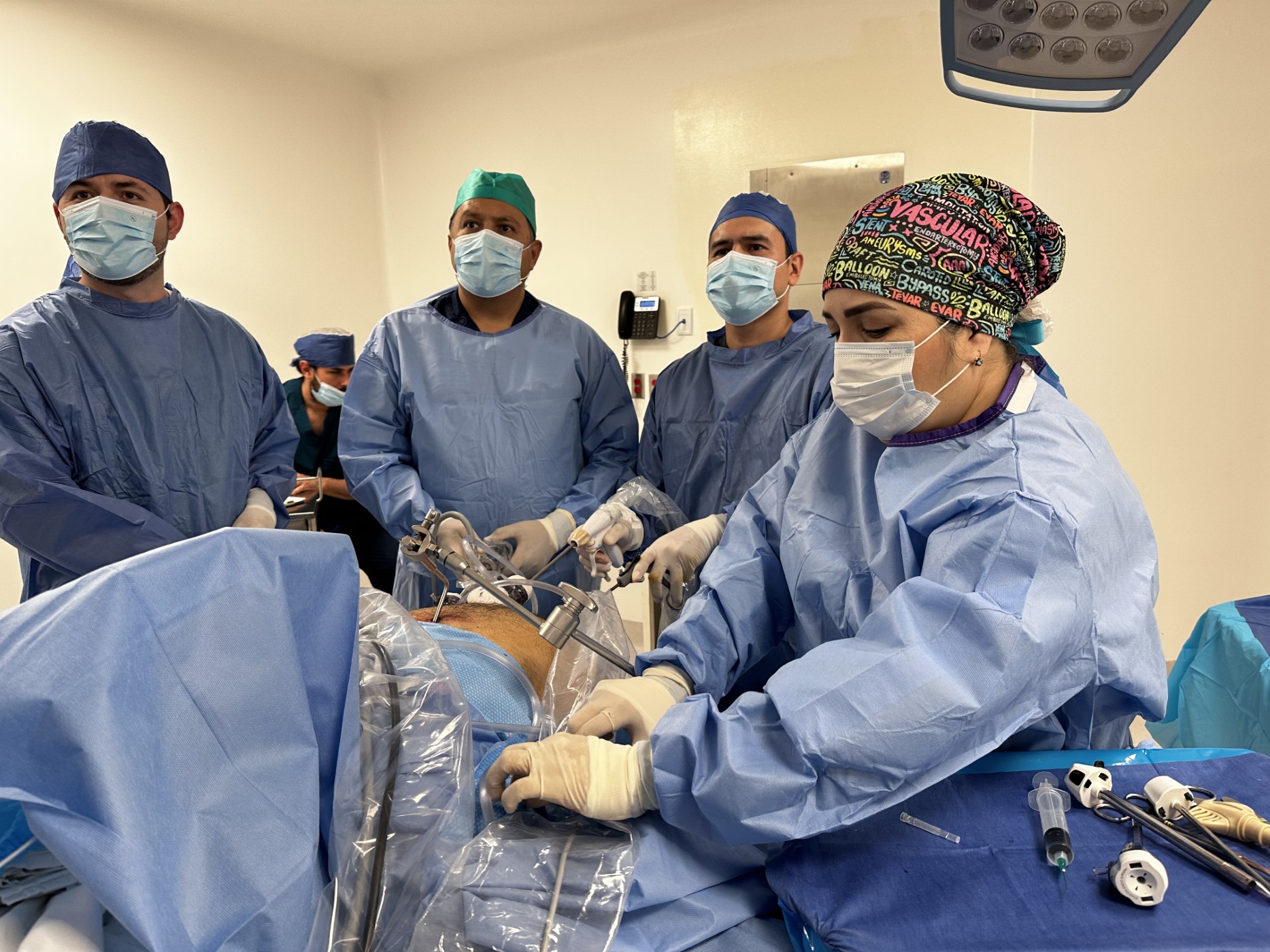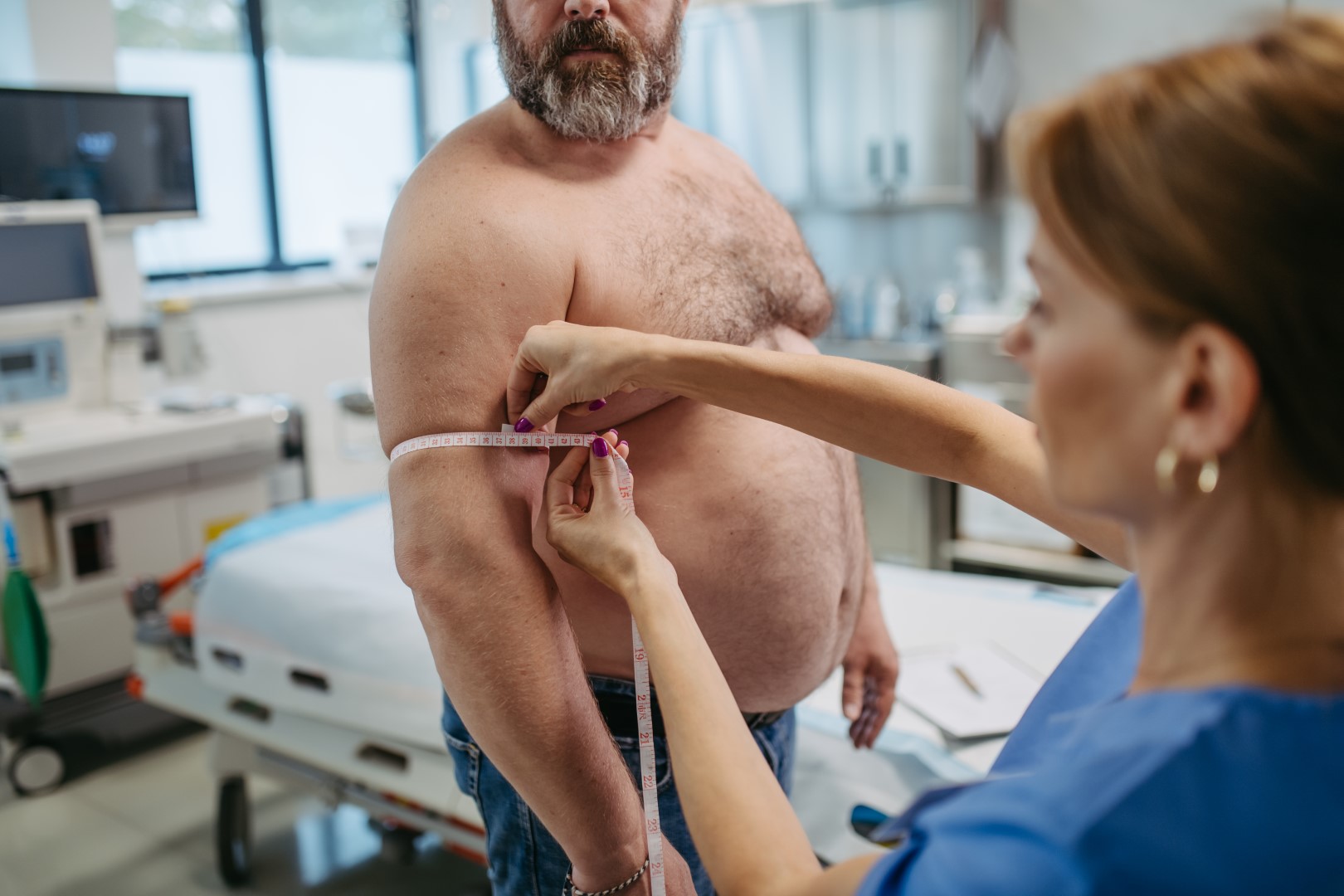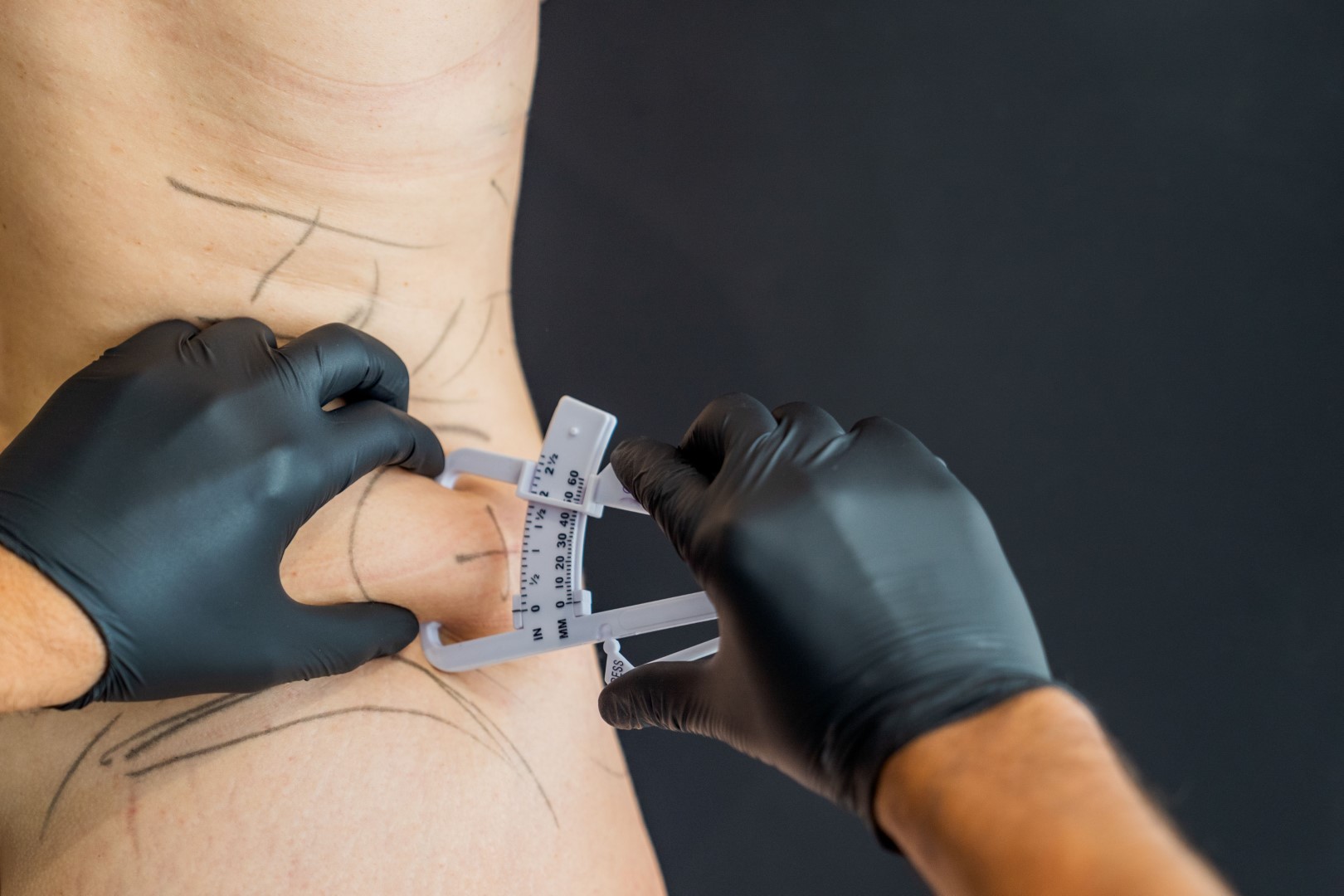In the world of modern medicine, few interventions have such a profound impact on the lives of patients as the Gastric Bypass. This procedure, perfected by experts such as Dr. Luis Canonot only represents an effective solution to combat severe obesity, but also offers a new opportunity for a healthier and more active lifestyle. The Bariatric Surgeryincluding variants such as the Gastric Sleeve and the Mini Gastric Bypasshas evolved to become more than just a surgical technique; it is a bridge to wellness and long-term health.
The Gastric Bypass in particular has captured the attention of the medical community and patients alike, due to its promising results and the significant transformation patients experience postoperatively. From improvements in chronic obesity-related conditions to remarkable and sustained weight loss, the success stories are both inspiring and eye-opening.
However, it is important to approach this surgery with a full understanding of what it entails. How exactly does the Gastric BypassIs it worth it in the long run? And perhaps most importantly, can patients expect to lead a normal life after surgery? In this article, we will delve into these questions, offering a clear and detailed look at what patients can expect before, during and after undergoing this transformative procedure.
How does the Gastric Bypass surgery work?
The Gastric Bypass is an advanced surgical technique in the field of Bariatric Surgerywidely used and recommended by experts such as the Dr. Luis Cano at Tijuana Mexico. This procedure is not only a weight loss intervention, but also a comprehensive strategy to improve the patient's overall health. Below, we explore how this surgical technique works and its impact on the body.
First, it is essential to understand the nature of the Gastric Bypass. The procedure involves two main components: the creation of a small pouch in the stomach and the connection of this pouch directly to the small intestine. This operation is performed under general anesthesia and can be performed using open or laparoscopic techniques, the latter being the most common due to its less invasiveness and rapid recovery.
- Creation of the Stomach Pouch
The surgeon begins by creating a small pouch at the top of the stomach using surgical staples. This pouch, which will be the new reduced stomach, is about the size of an egg. Its small capacity limits the amount of food the patient can consume, which contributes to significant weight loss. - Reconnection to the Small Intestine
La segunda parte del procedimiento implica desviar o ‘bypassear’ la mayor parte del estómago y la primera sección del intestino delgado. El cirujano conecta la pequeña bolsa estomacal directamente a una parte más baja del intestino delgado. Esto no solo reduce la cantidad de alimento que el paciente puede comer, sino que también disminuye la absorción de calorías y nutrientes, lo que contribuye aún más a la pérdida de peso. - Impact on Intestinal Hormones
The Gastric Bypass also has a significant impact on several gut hormones that control hunger and satiety, as well as blood sugar management. Hormonal changes help reduce appetite and improve control of type 2 diabetes.
The Gastric Bypass works by fundamentally altering the anatomy of the digestive system, resulting in a significant reduction in stomach size and altered food absorption. These physical changes, along with hormonal modifications, contribute to effective and sustainable weight loss. This procedure, performed by specialists such as the Dr. Luis Cano at Bariatric Surgery in Tijuanarepresents a transformative opportunity for people with severe obesity, offering not only an improvement in quality of life but also in long-term health.

Is Gastric Bypass worth it in the long term?
When considering surgery for Gastric BypassOne of the main concerns of patients is whether the benefits of the procedure will last over time. Leading professionals such as Dr. Luis Canospecialist in Bariatric Surgery in Tijuanaemphasize the long-term efficacy of this intervention, not only in terms of weight loss, but also in the overall improvement of health and quality of life.
- Sustained Weight Loss
One of the major advantages of the Gastric Bypass is the ability to achieve and maintain significant weight loss. Studies indicate that most patients maintain the loss of a substantial portion of their excess weight over the long term. This result is especially remarkable in comparison to traditional weight loss methods, such as diet and exercise, where the weight lost is often regained. - Improvement of Obesity-Related Health Conditions
The procedure has been shown to be effective in improving or even resolving obesity-related health conditions such as type 2 diabetes, hypertension, sleep apnea and cholesterol problems. These health improvements can lead to a reduction in the need for medications and a reduced likelihood of developing serious health problems in the future. - Quality of Life
Beyond the numbers on the scale, patients often report a significant improvement in their quality of life. This includes increased mobility, improved mood, increased self-esteem and more active participation in social and family activities. - Reduction in Mortality
Long-term studies have shown that patients who undergo Gastric Bypass have a lower overall mortality rate compared to those who do not undergo surgery, primarily due to the reduction in obesity-related diseases.
The Gastric Bypass is an option worth considering in the long term for those struggling with severe obesity. Under the supervision of specialists such as the Dr. Luis CanoThis procedure is not only a means to lose weight, but an integral tool to improve the patient's overall health and well-being.
Can You Live a Normal Life After Gastric Bypass Surgery?
The surgery of Gastric Bypass is a significant transformation in a patient's life, and a common question that arises is whether a normal life can be led after the procedure. Experts in Bariatric Surgeryas the Dr. Luis Cano at Tijuana, MexicoThe authors of the study, however, assure that not only is it possible, but also that the quality of life is likely to improve significantly after surgery.
- Postoperative Recovery and Adaptation: Initially, life after the Gastric Bypass involves a period of adjustment and recovery. Patients go through several dietary phases, from liquids to the gradual reintroduction of solids. Although this period can be challenging, it is a temporary phase that leads to a new, healthier way of life.
- Changes in Diet and Lifestyle: In the long term, patients must adhere to a balanced diet and remain physically active. Although food portions are smaller, patients learn to enjoy a variety of foods in amounts their body can comfortably handle. Nutrition education is a crucial part of this process.
- Improved Physical and Emotional Health: Many patients experience noticeable improvements in physical health, including a reduction in symptoms of chronic disease. In addition, significant weight loss often leads to improved self-esteem and emotional well-being. These positive changes contribute to a sense of normalcy and well-being in daily life.
- Social and Professional Activities: With weight loss and increased energy, patients often find a renewed interest in social activities and greater ease in participating in events, family activities and professional opportunities. This is vital to integrating a sense of normalcy into their lives.
- Regular medical follow-up: It is essential to continue regular medical follow-up and possibly vitamin supplementation. This ongoing care ensures that patients maintain their health and take full advantage of the benefits of surgery.
Thus, after an initial period of adjustment and recovery, the patients from Gastric Bypass often lead normal or even improved lives. With proper care, the guidance of specialists such as the Dr. Luis Cano and a commitment to a healthy lifestyle, the surgery will Gastric Bypass offers a new opportunity to enjoy life in a fuller and healthier way.
To conclude
The surgery of Gastric Bypassone of the most common and effective interventions in the field of Bariatric Surgeryoffers a new hope and path to a healthier life for many who struggle with severe obesity. Throughout this article, we have explored the various aspects of this surgery, from its performance and long-term benefits to the possibility of leading a normal and satisfying life after the procedure.
Under the guidance of experienced professionals such as Dr. Luis Cano at Tijuana, MexicoIn addition to significant weight loss, patients can expect not only significant weight loss, but also improvements in obesity-related diseases, improved quality of life and a reduction in obesity-associated mortality. Surgery, however, is not a magic bullet, but rather a starting point toward lasting, healthy lifestyle changes.
It is critical that patients consider all aspects of surgery, including the challenges of recovery and the need for dietary and lifestyle adjustments. With the right support and a firm commitment to their new life, patients can not only achieve their weight loss goals, but also enjoy the many benefits that this transformation brings.
In summary, the Gastric Bypass is a powerful tool in the fight against obesity, and with proper care and guidance, it can be the beginning of a renewed life full of possibilities.






